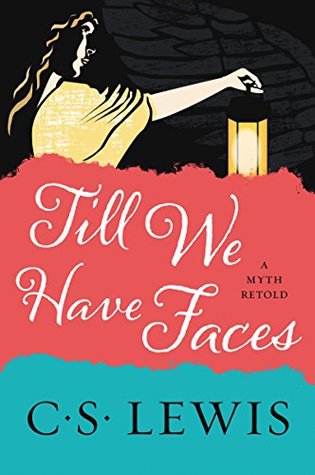More on this book
Community
Kindle Notes & Highlights
‘This,’ she said, ‘I have always—at least, ever since I can remember—had a kind of longing for death.’ ‘Ah, Psyche,’ I said, ‘have I made you so little happy as that?’ ‘No, no, no,’ she said. ‘You don’t understand. Not that kind of longing. It was when I was happiest that I longed most. It was on happy days when we were up there on the hills, the three of us, with the wind and the sunshine . . . where you couldn’t see Glome or the palace. Do you remember? The colour and the smell, and looking across at the Grey Mountain in the distance? And because it was so beautiful, it set me longing,
...more
you think it all meant nothing, all the longing? The longing for home? For indeed it now feels not like going, but like going back. All my life the god of the Mountain has been wooing me. Oh, look up once at least before the end and wish me joy. I am going to my lover. Do you not see now—?’
And my struggle was this. You may well believe that I had set out sad enough; I came on a sad errand. Now, flung at me like frolic or insolence, there came as if it were a voice—no words—but if you made it into words it would be, ‘Why should your heart not dance?’ It’s the measure of my folly that my heart almost answered, ‘Why not?’ I had to tell myself over like a lesson the infinite reasons it had not to dance. My heart to dance? Mine whose love was taken from me, I, the ugly princess who must never look for other love, the drudge of the King, the jailer of hateful Redival, perhaps to be
...more
And now, you who read, give judgement. That moment when I either saw or thought I saw the House—does it tell against the gods or against me? Would they (if they answered) make it a part of their defence? Say it was a sign, a hint, beckoning me to answer the riddle one way rather than the other? I’ll not grant them that. What is the use of a sign which is itself only another riddle? It might—I’ll allow so much—it might have been a true seeing; the cloud over my mortal eyes may have been lifted for a moment. It might not; what would be easier than for one distraught and not, maybe, so fully
...more
I did not, even when I had finished the book, see clearly many things that I see now. The change which the writing wrought in me (and of which I did not write) was only a beginning—only to prepare me for the gods’ surgery. They used my own pen to probe my wound.
Do you think we mortals will find you gods easier to bear if you’re beautiful? I tell you that if that’s true we’ll find you a thousand times worse. For then (I know what beauty does) you’ll lure and entice. You’ll leave us nothing; nothing that’s worth our keeping or your taking. Those we love best—whoever’s most worth loving—those are the very ones you’ll pick out. Oh, I can see it happening, age after age, and growing worse and worse the more you reveal your beauty: the son turning his back on the mother and the bride on her groom, stolen away by this everlasting calling, calling, calling
...more
When the time comes to you at which you will be forced at last to utter the speech which has lain at the centre of your soul for years, which you have, all that time, idiot-like, been saying over and over, you’ll not talk about joy of words. I saw well why the gods do not speak to us openly, nor let us answer. Till that word can be dug out of us, why should they hear the babble that we think we mean? How can they meet us face to face till we have faces?
And in that far distant day when the gods become wholly beautiful, or we at last are shown how beautiful they always were, this will happen more and more. For mortals, as you said, will become more and more jealous. And mother and wife and child and friend will all be in league to keep a soul from being united with the Divine Nature.’
I ended my first book with the words no answer. I know now, Lord, why you utter no answer. You are yourself the answer. Before your face questions die away. What other answer would suffice?


